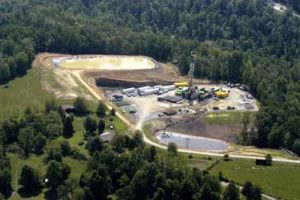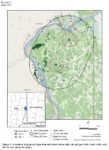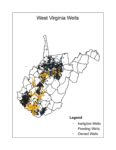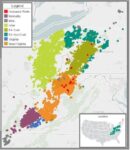Elsewhere in this newsletter is an article explaining that as a result of a West Virginia Supreme Court decision, in almost all cases, surface owners can sue for substantial money if a driller uses their surface for a pad, road etc. for a horizontal well — even sometimes if the surface owner already signed an agreement.
But what if the surface owner’s land was not actually used, but the surface owners were subject to noise, lights, dust, bad ground water etc? WVSORO believes that these surface owners can also sue, despite a recent West Virginia Supreme Court decision that at first blush seems to go against those surface owners. This decision, Andrews vs. Antero Resources Corporation, 828 S.E.2d 858 (June, 2019) ruled against the surface owners in that particular case saying they had not proven their case. But it left the door open for surface owners who, now that they understand the law better, can prove their cases.
First, if there is no use of the surface owner’s land, and if there are no well bores from that pad going under the surface owner’s land, it is clear that a nuisance suit can be brought to get resulting damages and maybe even to get an injunction reducing the noise etc.
Second, even if a horizontal well bore from the well pad travels through the mineral tract underlying the surface owner’s land, WVSORO believes that the surface owner can sue. It is true that the owner/lessee of a mineral tract has the right to do what is reasonably necessary to the surface to produce the minerals (as long as that level of disturbance was contemplated by the parties at the time of the original severance). But horizontal well bores almost always bore through more than just one mineral tract. So, because the problem on the surface owner’s tract was caused by a well pad etc. producing gas from not just the underlying mineral tract, but from other neighboring mineral tracts, the surface owner above a well bore can sue for the additional problems cased by the impact on their surface from drilling into and producing from the neighboring mineral tracts.
In addition, the driller can only do what is reasonably necessary. So if the noise, for example, was less than having even a conventional well on the neighboring surface’s owners tract, but building a simple noise wall along one side of the pad next door would lessen it, then only the level of noise with the wall is reasonably necessary.
Finally, surface owners everywhere can always sue if drilling harms their groundwater and affects their wells. There are even some presumptions in the law for certain distances.
So if you are having problems with noise, lights, dust, traffic, water contamination, you should see a lawyer, and we have a list on our website. Got o our website and look under “New Resources and Advice” for our web page “A driller is putting a well pad near my house/land. What can I do about it?” for more information.











